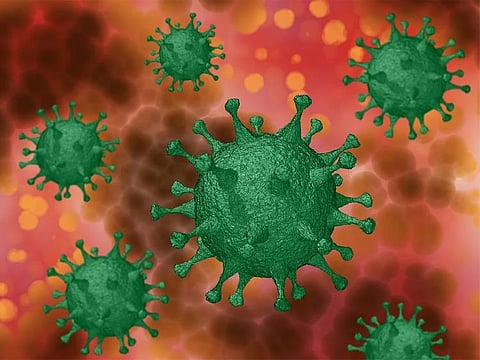Don’t rely on bogus COVID-19 remedies: Abu Dhabi doctor
Unproven solutions include nasal washes, hot treatments and random medications

Abu Dhabi: A top epidemiologist in the UAE has cautioned residents against following unproven remedies and cures to treat or prevent COVID-19.
Reports of treatments and therapies are aplenty on the Internet, such as nasal washes with lemon-vinegar-salt mixture, heating up with mucosa with hair dryers or opting for medications like chloroquine. But Dr Juan Acuna, chair of epidemiology and public health at the Khalifa University, stressed that there are still no proven medications to kill the novel coronavirus responsible for the COVID-19 pandemic.
“In fact, the senseless adoption of these recommendations blows my mind. People who are nervous opt for these treatments, or in fact, try anything, but [doing so can be very dangerous]. One medicine that became very popular was (the anti-malaria drug) chloroquine but is now linked to deaths because people are using it without indication,” Dr Acuna said.
“There are still no proven treatments, even though there are many trials underway across the world. Given the number of cases around the world [to try therapies on], if something is effective against the coronavirus, we will come to know of it,” Dr Acuna said.
He was speaking during an online seminaR, during which he praised the UAE leadership’s proactive action against the coronavirus outbreak.
“The measures have been very, very responsible. There is still a relatively small number of cases, the rate of growth of the spread has been relatively slow,” he said.
Among other untested therapies is a nasal wash with lemon, vinegar and salt. Dr Acuna explained that administering this without medical advice is simply painful and uncomfortable, and achieves nothing.
Others recommend heating nasal and oral mucosa with a hairdryer through the mouth to kill the virus, or to take a hot enough steam bath to achieve the same effect.
“But evidence now shows that to kill the virus, we have to achieve temperatures of 70 degrees Celsisus, and these are very dangerous temperatures. You cannot reach these temperatures with a hairdryer or steam bath without also burning yourself. So it is absurd that physicians are also making such recommendations,” Dr Acuna said.
He also advised against taking any drugs for the moment to protect oneself from COVID-19.
“For now, do not take any medication with the hope that it will prevent infection or reduce the severity of the illness. Trials are underway, and we must wait for these recommendations. Besides, one drug rarely ever works for everyone everywhere,” Dr Acuna said.
Instead, he advised that residents work with the health system, which, even if it is not overwhelmed yet, is busy ensuring it is prepared to deal with an increasing number of cases.
“In most parts of the world, the number of cases is still yet to peak, and it will only get worse. So we should responsibly follow social distancing recommendations [to ensure that healthcare workers have more time to respond and implement other solutions that come up],” Dr Acuna said.
Responding to Gulf News, Dr Acuna said it is very difficult to predict when the infections will peak in the UAE.
“This depends on how the virus behaves with the population and how the population itself behaves. We can only hope it will be a very low peak [of the number of COVID-19 cases] that won’t overwhelm health services. Predicting when this will happen is however difficult, and this is one of the problems. People do not know how much to prepare, how many critically ill patients there will be, how many tests can be done and how many people in the healthy population can be tested to predict the pattern of spread,” he said.
The expert therefore recommended that people disinfect commonly touched surfaces and themselves, especially if they absolutely have to meet others. In addition, he advised that people only rely on trusted sources for information, such as the US Centres for Disease Control (CDC), the Karolinska Institute, Khalifa University and UAE Government sources.
“Access to information is not the problem of this generation. Instead, we must filter our sources [to stay safe],” he urged.







